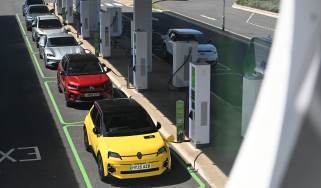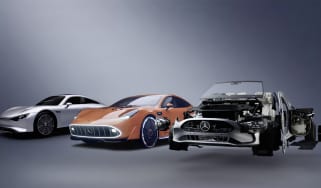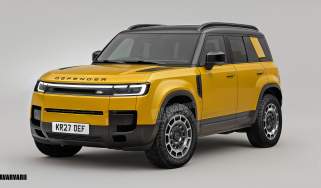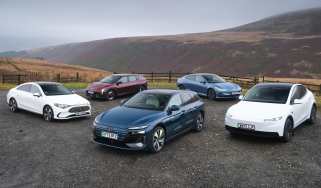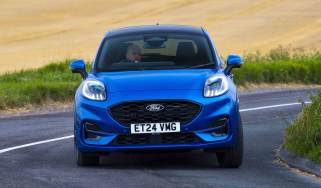Electric car adoption to hinge on advanced new tech that makes life easy
Leading industry analyst says EVs’ ability to integrate with homes and smart tech will ultimately persuade buyers to go electric
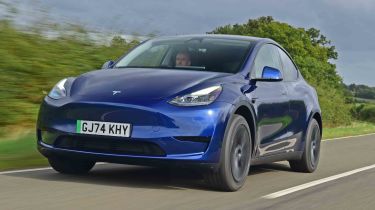
Advanced technology holds the key to pulling more people into electric vehicles, enticing drivers to vehicles that integrate into their lives in a way that internal combustion engined cars aren’t able to do, according to Bryan Chance, Future of Mobility Co-Leader at analyst Ernst & Young (EY).
Chance told Auto Express that the advent of so-called software-defined vehicles, similar to an iPhone where the software is an integrated stack rather than separate systems working together, is opening up EVs to new technological advancements.
“Tesla and BYD, for example, have developed a software defined vehicle,” he explained. “With that comes tremendous technology advancement, tremendous connectivity, the ability for the vehicle to connect to the grid, to the city, to other vehicles etc, enhancing safety for example. An enticement for the consumer will be the advanced tech.”
He predicted that, along with genuine price parity for battery technology, the fact that EVs are more advanced, and can fit into a smarter future with better integration to homes, cities and other vehicles, will help them reach a tipping point of adoption.
He continued: “If you think about the safety systems that a software defined vehicle allows, you’re not just limited to your own cognitive ability for safety in the vehicle. You’re also relying on code, on millions and millions of miles driven by others, to recognise danger. So there's a safety element.
“Then there is a consumer adoption element; it’s going to happen incrementally until we hit that tipping point. And that tipping point is unclear at this point in time, but when it hits, it will hit and to me, it’s almost a synchronous move of technology and price.”
Chance said it has been easier for new entrants such as Tesla, BYD and, in the US, Rivian, because as fresh brands they have been able to be bolder and more aggressive. They have also benefited by not having to run internal combustion engine production lines alongside EVs, as traditional manufacturers are doing through the transition.
Chance said: “The traditional OEMs know how to manage a supply chain, build vehicles at scale in an ICE framework, but they don't have that software over-the-air update capability and they don’t have the development operations that these newer brands have.
“So it really is a nexus of who can get there faster: can Tesla and the other emerging EV companies get to producing at scale efficiently faster, or can the traditional OEMs get to developing muscular dev-ops, over-the-air updates and tech stack? When that happens, the price point will come down.”
According to EY’s Mobility Consumer Index, worldwide EV growth slowed from 65% in 2022 to 32% in 2023 and a predicted 15% in 2024, although it is expected to accelerate again to around 28% year-on-year growth in 2025. The UK ranks fourth in Europe for European buying intent, with 23% of prospective buyers intending to go fully electric. Norway leads on 44%, with Germany and Denmark on 26%, and Italy, France and Sweden just behind the UK.
Worldwide, the figure is 24%,with Vietnam, China and Thailand leading the way, while the US is only at 11%.
Want the latest car news in your inbox? Sign up to the free Auto Express email newsletter...





